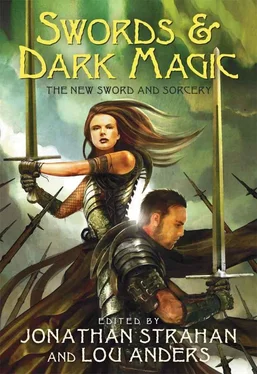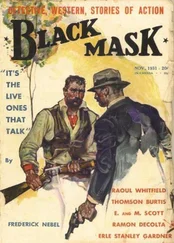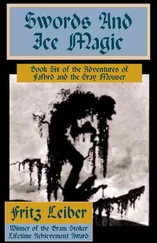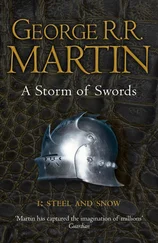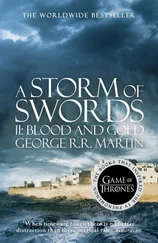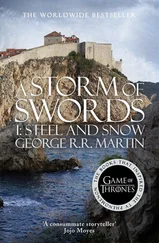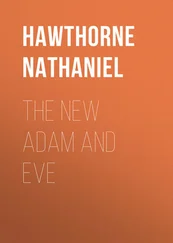“I’m not walking,” he noticed.
Because I’m fighting him. He’s trying to drive me out.
Fool Wolf considered that for a moment. “Can he?”
No. But this is taxing, and I cannot help you like this.
“That’s interesting,” he said. “I wonder if you’re lying. If he might rid me of you, given time.”
He would have you then, always. Do you want that?
“I could drop the sword.”
Not if I’m gone. But you can drop it now. You should drop it now.
Fool Wolf looked at the weapon, considering, seeing possibilities. If Qash forced her out, and he managed to leave the valley, wouldn’t he be free? Qash was a god of place—he would stay. It might be a chance worth taking.
But he didn’t know enough yet.
“Let’s not be in a hurry about this,” Fool Wolf said. “I think I’ll go have a look at those virgins, first.”
Ruwhere hadn’t made any effort to hide her trail, and even without his senses heightened by Chugaachik Fool Wolf was a good tracker. Her path carried him higher up the steepening valley wall, through rattling stands of bamboo and graceful tree ferns, and finally to a series of broad terraces planted in crops that Fool Wolf didn’t recognize. A few men and women working in the fields gave him odd glances, but no one spoke to him.
Above the fields he came to the village, if it could be called that. Tents, lean-tos, and a few crude houses—all clearly recent—clustered thickly around an older, much more solid building, an enormous longhouse of cedar raised up on twelve thick stone pedestals. A lot of people were watching him now, but he didn’t see any with weapons. He strolled toward one of the long ladders that led up to the house as if he belonged there. He almost made it before a young woman stepped in front of him. She was pretty, with a round face and pink cheeks, probably no more than sixteen.
“Who are you?” she demanded. She seemed frightened, but determined.
“My name is Fool Wolf,” he said. “Ruwhere sent me to make sure the virgins are safe.”
“They are,” she said.
He put on his most winning smile. “Might you be one of them?”
She laughed bitterly. “Not for a while,” she said. “You’re a foreigner aren’t you? You don’t know much about this place.” She looked him up and down. “But you wear their armor,” she said.
“I took this from one of them,” he lied. “After I killed him.”
“Maybe you did,” she said. “If so, thank you. But if you serve them, I will find a way to kill you.”
“I take it…” he trailed off.
“We all were,” she said shortly.
He noticed that a crowd had gathered now, mostly women.
“I’ll never bear children,” she said. “That’s how badly they hurt me—and I was lucky. I used to think that was for the best, because I would never have my daughter taken for the ritual. But then Ruwhere freed Qul, and everything has changed.” She lifted her chin defiantly. “You’ll have to kill me if you want them.”
“I don’t want…” he stopped. “How old were you?”
“Older than most. The younger we are, the more we sustain them. Or so they think, anyway.”
Fool Wolf looked up the ladder. He heard a long, piercing wail.
He shoved the girl out of the way, rushed up the bamboo steps. He heard her screaming and felt her weight join his on the ladder.
The longhouse was one vast empty space. A few older people looked up as he entered, but besides them, of the more than a hundred inhabitants of the building, none looked to be over the age of four. Most were infants.
The girl hit him in the back. He ignored her as the sword in his hand hummed in hunger and Chugaachik howled with lust. A wind came through the house, and he smelled juniper.
Hesqel looked down at Fool Wolf from his high seat and smiled.
“You’ve done it,” he said. “You have the sword.”
“That I do,” he replied. “And so where is my companion?”
“She is safe, in the prison. But you’ve only performed half of your task.”
“You sent me to get the sword, nothing more.”
“Something’s wrong,” one of the others said. “He should be—”
“Yes, he should,” Hesqel said. “He who bears the sword should be host to Qash.”
“Oh, he’s here,” Fool Wolf said, raising the blade.
Hesqel sneered. “I don’t know what witchery prevents his incorporation, but that weapon cannot harm any of us.”
“I believe you,” Fool Wolf said.
He dropped the sword.
Godblood, Chugaachik sighed as he stepped over the dead. Almost as good as babies. Release me again—we’ll go back up there, find out what Qash sees in virgins.
He didn’t even bother to answer her, but just shook his head wearily.
You’ve never been like that before, sweet thing. That was more you than me.
“I know.”
Why?
“You wouldn’t understand,” he said.
We’ve killed children before. We’ve done things these pathetic half-men never dreamed of.
“That’s right,” Fool Wolf replied. “Now, sleep.”
It was easy, because she was sated. As she slunk away, he could still feel her genuine confusion.
He had to kill a guard to free Inah. She looked at the yellowish blood that soaked his clothes and coated his face and shook her head,
“You let her out,” she said. “After all that talk.”
“I did it to save you, of course,” he replied.
“That’s a lie,” she said, “but I like it.” She leaned up and kissed him.
He bathed in the same pool as he had earlier, then donned some clothes they had taken from a line on the outskirts of the city. By nightfall they were at the rim of the valley. Unfamiliar dales and peaks walked off north, east, and west.
“Which way?” Inah asked.
In the darkening sky, Fool Wolf picked out the constellation his people called the Twins, used that to find the star called the Yekt Kben, the Hearth, the one that never moved. Then he pointed a bit to its right.
“What’s there?” she asked.
“Home,” he replied.
HEW THE TINTMASTER
Michael Shea
MICHAEL SHEA was born to Irish parents in Los Angeles, California, where he frequented Venice Beach and the Baldwin Hills for their wildlife. After attending UCLA on the advance-placement program while still in the tenth grade, he made his way to UC Berkeley for the wildlife there during the Time of Troubles. He hitchhiked across America and Canada twice, and at a hotel in Juneau, Alaska, chanced on a battered book from the lobby shelves: The Eyes of the Overworld , by Jack Vance. It led to his first Vancean novel, A Quest for Simbilis , which was published in 1974. Shea followed that with several novellas, some horrific, some comic, in the Magazine of Fantasy and Science Fiction , including the Nebula Finalist, “The Autopsy.” He published Nifft the Lean in 1982. A classic of the genre, it won the World Fantasy Award and was followed by The Mines of Behemoth and The A’rak . Other work includes novels The Color Out of Time ; In Yana, the Touch of Undying ; and collections Polyphemus and The Autopsy and Other Stories .
Ah, colorful Helix! It’s a rainbow whirligig, a bright coil of bustling streets and painted structures that spirals up the little mountain—or grand hill—of the same name. It lies a few miles inland from Karkmahn-Ra, Earth’s most seething port, and the hub of trade for the whole Sea of Agon.
Every ridgeline of Helix’s slopes is crusted with proud halls and domiciles, and their burnished roof-tiles and gaudy walls flash like the jumbled facets of a grand jewel extruded from the plain. For color’s the thing in Helix. True, the whole Ephesion Island Chain boasts a culture of panache and proud display—the Bazaar of the Southern Hemisphere it’s called—but in Helix, pigmentation borders on obsession, on delirium. Mounted as the city is on the rough cone of its eminence, every structure’s on exhibit, and an ethos of self-proclamation prevails. It is a chromatic carnival.
Читать дальше
